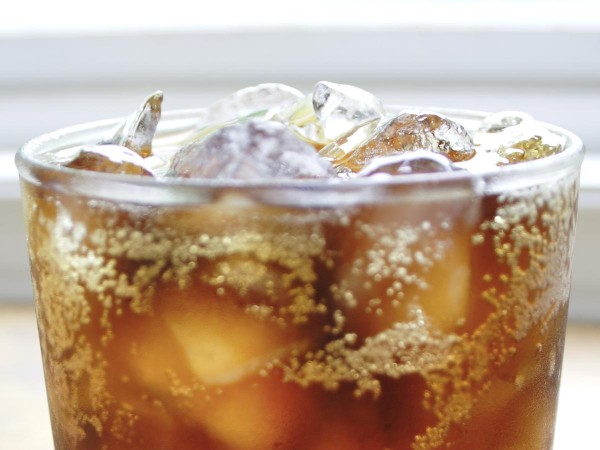Shocking: Drinking soda daily may make you more susceptible to stroke or dementia
04/25/2017 / By Frances Bloomfield

Put the can down; according to new research, making a daily habit of soda may triple your risk of a stroke. A team of researchers from the Boston University School of Medicine have found a link between artificially-sweetened drinks and dementia and stroke, reports TheSun.co.uk.
With lead author, Matthew Pase, the researchers examined the data of over 4,300 people from the Framingham Heart Study, a project of the National Heart, Lung, and Blood Institute and Boston University. Over the course of a 10-year period, from 1991 to 2001, the team kept track of 2,888 individuals over the age of 45 for the development of a stroke, and 1,484 individuals over the age of 60 for dementia. All of the participants were from the town of Framingham, Mass.
For the purposes of the study, age, sex, education (for the analysis of dementia), smoking, physical activity, diet quality, and the amount of calories consumed were all taken into consideration. The team did not ask which artificial sweeteners were used, but stated that the diet drinks most likely contained saccharin, acesulfame, neotame, sucralose, or aspartame. By the end of the study, they were able to observe 97 cases of incident stroke, 82 of which were cases of ischemic stroke, and 81 cases of incident dementia, with 63 cases being consistent with Alzheimer’s disease. They also noted that individuals who consumed at least one artificially-sweetened beverage a day were “three times as likely to develop ischemic stroke and 2.9 times as likely to develop Alzheimer’s disease dementia.”
“We found that those people who were consuming diet soda on a daily basis were three times as likely to develop both stroke and dementia within the next 10 years as compared to those who did not consume diet soda,” Pase has said in a statement to NBCNews.com.

To the surprise of the researchers, sugar-sweetened beverages did not pose the same risk as drinks that had been artificially sweetened. They did, however, notice other signs. Pase noted, “In our first study we found that those who more frequently consume sugary beverages such as fruit juices and sodas had greater evidence of accelerated brain aging such as overall smaller brain volumes, they had poorer memory function and they also had smaller hippocampus, which is an area of the brain important for memory consolidation.”
Other experts have concurred with the findings. “Both sugar-sweetened and artificially sweetened soft drinks may be hard on the brain,” Dr. Ralph Sacco, Chairman of the Neurology department at the University of Miami has said. In the past, Sacco led another study that investigated the connection between diet soda and its effects on heart health.
“Now with the growing number of studies that suggest a relationship between artificial sweetened beverages and vascular risk, I would say reach for a bottle of water before you reach for your artificial sweetened beverages,” Sacco stated. (Related: Soda Consumption Linked to Heart Disease)
Rachel K. Johnson, former Chair of the American Heart Association‘s Nutrition Committee, has also suggested cutting down on the amount of sodas. “We know that limiting added sugars is an important strategy to support good nutrition and healthy body weights, and until we know more, people should use artificially sweetened drinks cautiously,” Johnnson said to Newsroom.Heart.org.
Indeed, rather than taking the risk with soda, water might be the best choice as a refreshing drink. In the words of Pase, “We recommend that people drink water on a regular basis instead of sugary or artificially-sweetened beverages.”
You can read more soda-related news by visiting Sweeteners.news.
Sources Include:
Stroke.AHAJournals.org
TheSun.co.uk
NBCNews.com
Newsroom.Heart.Org
Submit a correction >>
Tagged Under:
artificially sweetened drinks, dementia, soda, sodas, stroke
This article may contain statements that reflect the opinion of the author





















